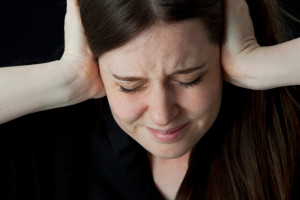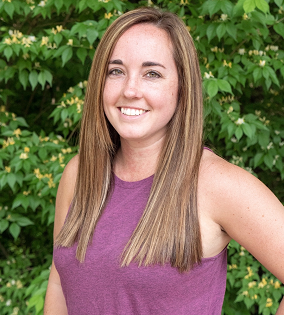- Calls to this hotline are currently being directed to Within Health, Fay or Eating Disorder Solutions
- Representatives are standing by 24/7 to help answer your questions
- All calls are confidential and HIPAA compliant
- There is no obligation or cost to call
- Eating Disorder Hope does not receive any commissions or fees dependent upon which provider you select
- Additional treatment providers are located on our directory or samhsa.gov
Weekly Hope – Camille Williams, MA, NCC, LPC – Depression and Eating Disorders – Part 1

Weekly Hope with Kirsten Haglund is a Facebook Live interview series, airing each Wednesday on Eating Disorder Hope’s Facebook Page at 12:00 p.m. Eastern Time. Guests discuss a wide range of different topics encompassing the field of eating disorders and mental health and include leading doctors, clinicians, experts, advocates, and people with their own recovery experiences, offering their insight and sharing their wisdom through constructive conversation.
Bringing her own journey of recovery into context, Kirsten has created a safe, open and non-judgmental space where viewers can also share their experiences and access professionals and clinicians to offer them meaningful advice and resources. There are no wrong questions here, only understanding and acceptance.
The topic of this particular episode is the comorbidity of depression and eating disorders. To explore this critical topic more in-depth, Camille Williams, MA, NCC, LCPC was the invited guest on the show.
Initially a behavioral health specialist (BHS), Camille is today the Eating Disorder Program Coordinator at Timberline Knolls Residential Treatment Center in Illinois and a prominent member of the International Association of Eating Disorder Professionals (IAEDP). She supports the curriculum development, supervises the eating disorder specialists and conducts group therapy sessions.
With a Bachelor of Arts degree in both psychology and sociology and a Master of Arts in Clinical Professional Psychology, Camille is also responsible for the education and training of all staff members on campus and is an active advocate for eating disorder awareness through her contributions for various publications. She is also an active contributor to Eating Disorder Hope where some of her excellent articles are featured to reach to massive audiences.
Kirsten: A National Eating Disorders Association survey of women with an eating disorder reported 92 percent of these participants also to be struggling with a depressive order. I would like you to share with us as to why do you think the prevalence of this comorbidity is so tremendously high and what different kinds of depressive disorders are individuals dealing with that have an eating disorder?
Camille: Honestly speaking, I am not too surprised to hear this number because the two disorders work in tandem and feed off of each other. Appetite is a significant symptom of any depressive disorder. Depressed individuals often notice fluctuations in appetite, and it tends to impact their food intake. Eating disorders bring with them a lot of anxiety and depression, so it’s hard to differentiate what comes first: depression or eating disorder?
Major Depressive Disorder is the most common type to co-occur with eating disorders. It is when somebody experiences depressive episodes that may last a couple of weeks or a couple of months, and usually, it ebbs and flows so there might be some periods of relief. This requires monitoring of symptoms.
Then there is an adjustment disorder accompanied by depressive symptoms usually experienced by someone as a result of a significant life event, such as passing away of a loved or losing an important job. It can be any event that is particularly challenging in a person’s life, and they struggle to adjust to it for typically a period of 6 to 9 months. However, if the symptoms last longer than that time period, then it might be more than just that.
 Kirsten: There is a lot of stigma and misconception surrounding depression, but with recent celebrity suicides over the last couple of years, this has become a much more common topic being discussed in public than ever before. So given your experience working with an array of patients, can you describe or summarize what depression may feel like?
Kirsten: There is a lot of stigma and misconception surrounding depression, but with recent celebrity suicides over the last couple of years, this has become a much more common topic being discussed in public than ever before. So given your experience working with an array of patients, can you describe or summarize what depression may feel like?
Camille: Depression is challenging because different people experience it differently. Symptoms can manifest themselves in various ways so it is really important for someone, who may think they are experiencing depression, to reach out for support and have someone navigate them to make sense about what is actually going on with them.
Some common symptoms that depression might manifest itself as include a sense of an overwhelming heaviness that may not necessarily be sadness. It could be feelings of lethargy, or being stuck or even apathy. It may just be an overpowering state of numbness or disconnection that blocks a person from experiencing joy anymore or things that used to make a person happy just don’t anymore.
Depression is also accompanied by an array of physical symptoms as well such as significant increases or decreases in appetite and disrupted sleeping patterns where a person may be sleeping too much or too little.
Kirsten: When it comes to the young population group, adolescents and college students are experiencing the highest rates of anxiety, depression, and suicide. What do you think is driving this recent trend? Do you think it is because there is a greater awareness now or is it due to current cultural and environmental factors?
Camille: I believe this is always a tough question. It is only natural that the more people start talking about certain things, the more comfortable they are with sharing their experiences, and there will be a rise in the overall statistics.
However, in today’s time, we cannot deny the far-reaching influence of digital and social media that has resulted in actual disconnection from community and from building certain relationships. Also, given the increasingly individualistic nature of culture and society, where broken families are becoming more and more common, people are becoming more vulnerable and isolated than ever before.
The economy is also particularly volatile in the present scenario and has a significant influence on people’s sense of worth and well-being. Combined with social pressures, there is always a pressing need to make more money, look more beautiful, get thinner and be more popular. Young adolescents are even more vulnerable to these societal expectations, and alongside peer pressure, feelings of imperfection and the constant need to do more can add to isolation from one’s self and life in general.
Kirsten: And what role do genetics and biological makeup play in depression?
Camille: Yes, genetics definitely exert a huge influence. I believe Major Depressive Disorder is more genetically based where despite excelling in life, one can still end up struggling with depression.
Kirsten: Going back to what you mentioned earlier in our conversation regarding the interrelationship of eating disorders and depression, that it is difficult to determine which comes first. How much does this really matter?
Camille: It is so hard to tease the two of them out as one class appetite is so woven into depressive symptoms and they do feed off of each other. The cyclical nature of this comorbidity does make it difficult to determine which comes first, but I don’t think it really matters.
People tend to put eating disorders first because it is viewed as directly life-threatening and factually-speaking, also happens to have the highest mortality rate. At the same time, however, we cannot ignore the high rate of suicide associated with depression.
Unfortunately, eating disorders may be a coping mechanism for many struggling with depression where they turn to food for comfort and feeling good, leading to binge eating tendencies. Similarly, a person feeling dissociated and lethargic may find it easier not to eat, leading to restrictive patterns.
 The more somebody engages in eating disorder behaviors to try and cope with their depression, the more they will deny their body from the nutrients it needs to regulate itself naturally and resulting in them feeling worse than before.
The more somebody engages in eating disorder behaviors to try and cope with their depression, the more they will deny their body from the nutrients it needs to regulate itself naturally and resulting in them feeling worse than before.
Kirsten: What role does guilt and shame play in all this? A person battling these conditions often finds it hard to explain or talk about these co-occurring disorders, trying not to make it all about feelings such as guilt, shame, and sadness. Yet, it’s not that simple, and at the same time, guilt and shame can exacerbate depressive symptoms.
Camille: Absolutely! Associated stigmas may lead an individual to think they should not feel a certain way, they should be sufficient enough to cope with feelings of depression, or they should not even be feeling down in the first place. Such expectations can lead to increased shame and guilt, simultaneously exacerbating harmful behaviors and depressive symptoms.
In such instances, it is really important just to try and be kind and compassionate toward yourself. Admit that you are struggling and need help instead of invalidating yourself or judging yourself too harshly.
Kirsten: A lot of people suffer from depression and eating disorders, and hide it so well that most people around them can’t even tell. So what are some of the signs and symptoms that could help the loved ones or colleagues at a workplace identify these individuals with high-functioning depression and eating disorder?
Camille: I think this has a lot to do with just checking in with those around you and not just assuming that everything is okay. It is important to remember that we are all struggling and I think it is just best to have an open, honest conversation and help that person to maybe pause and reflect on their present circumstances.
This is particularly important because the toughest part is often that these individuals do not realize or recognize the signs and symptoms in themselves. If anything, you can at least help provide them with a safe space where they could be honest about their struggles and reach out for some much-needed help.
Kirsten: What are some constructive coping mechanisms that individuals battling depression and eating disorders can work on cultivating so that, let’s say post-treatment recovery, another depressive episode does not lead to relapse into an eating disorder?
Camille: During my experience working with different patients, I would say that what has stood out for me the most is Dialectal Behavioral Therapy (DBT). DBT skill set is the opposite of emotion action, and I think that works really well for both depression and an eating disorder. Perfectionists have to be a little cautious not to take it overboard and just set realistic goals or expectations.
It can start with something small: if your depression is causing you to want to stay in bed, then maybe all you need to ask yourself is if you can get out for 5 minutes or just run one errand today or maybe make plans with only one person. Rather than just giving in to your depression entirely, you can think of trying to do one little opposite thing of that and then maybe apply the same process to eating routines.
If you do not want to eat at all or eat too much, well just ponder on what you can do differently or how you can invite in a different experience. Maybe you can start with just a light snack, or if you are looking for comfort in food, perhaps instead of eating a gallon of ice cream by yourself, you could go out with a friend for a cup of ice cream.
Kirsten: Going back to our earlier piece of conversation regarding the associated stigma with these disorders, yet the use of medications for these disorders is often looked down upon. What would you like to say to someone who is considering taking a medication-assisted treatment and encourage them to do so without the fear of judgment or shame?
Camille: I think it is so unfortunate that there is still so much stigma associated with medication-assisted treatments for mental health. It is important to realize that just like medication is understood to be a logical solution to illness, depression and eating disorders are also medically-based phenomenons that influence the brain and its biology.
One thing that I often encourage in my practice is drawing comparisons to other illnesses and the need for medication to remedy them. I tell my patients that if I had diabetes and I needed to take insulin for that, should I feel ashamed about it because my body needs it to function correctly.
Anybody who needs medication or takes it in order to relieve themselves of an illness or the discomfort that comes with it, should believe in doing so and just hope that the world can follow up. People do need to eventually understand that mental health is just as important a physical health and medication-assisted treatments are available to provide the necessary support. If that’s what you need, then that’s what you need.
 Kirsten: And then the role of therapy is treatment is just as important right?
Kirsten: And then the role of therapy is treatment is just as important right?
Camille: Yes absolutely! That is what research has shown us again and again that the most effective treatment is usually a combination of medication and therapy. In any case, just the use of medications may not be sufficient enough because it is just as important to get emotional support as it is to fix the biology.
You’ve got someone to share your feelings with, talk through your experiences and figure out new ways to cope with your ups and downs. For a lot of patients, therapy is not enough, and they need that added help, just like taking vitamins.
If the depression is so severe where you cannot even initiate the opposite to motion action skill, then medication can help you be prepared for the upcoming changes and sustain them.
Kirsten: I’d like to take this moment to include one of our viewer’s question. Angela says that she got her tonsils removed 14 days ago and hasn’t had any solid food since then as per the doctor’s recommendation. As of today, Angela is supposed to restart her food intake but the thoughts of an eating disorder and depression are clouding her judgment, and she could use some advice moving forward.
Camille: Hi Angela! Glad you’re with us. At Timberline Knolls, we always recommend starting with baby steps. Especially after some sort of surgery, like the removal of tonsils in your case, you have to start with soft foods that are easy on your throat.
So let’s say you are starting off with Jell-O and having milkshakes, you can initiate a constructive thought process where you think of one solid food you can easily start with today and then maybe supplement your meals with some insurers or another supplement to make sure all your nutrients are being met.
Start with a food that maybe you don’t have to chew too much on or a sandwich that you feel comfortable or safe having. It’s all about a starting point that you have to decide upon and then take it from there. I hope that helps.
Kirsten: Thank you so much, Angela, for writing in and reaching out. We have two more great comments here actually. Kathy just joined in and is talking about being on so many meds that may not all necessarily be good for her.
There is actually this one great tool called genesite.com that provides information about various side effects that different drugs can exert. Every person’s case is different, but it is essential to be educated and taking ownership of your diagnosis and treatment. Camille, what would you like to add to that?
Camille: At Timberline Knowles, we have taken the initiative to conduct some genetic testing. I do not have too much authority on the topic, but it is essential to figure out whether or not your insurance covers such programs. I’m hoping this is something that can be mainstreamed soon because it is definitely worth it to know what medications are going to work best for your body and save time and unnecessary repercussions in order to optimize treatment.
Kirsten: Next, we have Jennifer who is a child psychiatrist, and she echoes Camille’s thoughts on how medication is yet another tool that can be effectively utilized to provide a foundation for further work in terms of therapeutic interventions.
So what are the next steps for recovery, especially for those also fighting depression, because it can be even harder for these patients to stay motivated? How can you encourage people that are watching us right now to follow through to get the help they need.?
Camille: I think it’s about finding the right support system and then really focusing upon realistic goals. It is vital upon deciding the right treatment team, starting with going to your doctor just to make sure that everything is okay physically and get some recommendations for a psychiatrist or a therapist to care for your mental health. There are also a lot of great online resources available to you find the help that matches what you need.
Where it is essential to find the right person to help you professionally, it is equally important to focus upon your personal and social support system that significantly influences you on a daily basis. It is essential to have people in your life that you can reach out to for support.
Maybe if you have been trying to enhance your food intake, you can consider someone who can have dinner with you often or a couple of different people who can join you frequently for meals. This may be a more constructive way of dealing with pressures of eating more. Instead of putting unnecessary pressure on yourself entirely to eat more every day, figure out how you can delegate and get the help to make a difference in your life in general.
Kirsten: Thank you so much for sharing your valuable insights and wisdom with us, Camille. I know a lot of people joined in to hear our conversation today and we all appreciate that on the show. I look forward to hopefully doing this again soon.
 Camille: Absolutely! Sounds wonderful, thank you so much for having me.
Camille: Absolutely! Sounds wonderful, thank you so much for having me.
Kirsten: A big thanks to you all for tuning in and for the wonderful conversation in the comments, especially those joining in today for the first time. I want to highlight again the fact that we posted some links in the comment section regarding what Camille has written for eating disorder hope so that you can learn from her work.
If you found something really meaningful in today’s video conversation and have a loved one or friend who might be struggling with depression or eating disorder or a combination of both, please go ahead and share this video with them as well. You can download the link to our Youtube channel or reach out to us on our Facebook page.
Wherever you are in the world tonight, I hope you have a wonderful day, wishing you peace, joy, and freedom as you continue on your journey to recovery. If you are lending support to a loved one, that you for being such a valuable support system.
Source:
Weekly Hope Conversation with Camille Williams on September 24, 2018.
Please visit the Weekly Hope with Kirsten Haglund page for other presentations.
 About the Author:
About the Author:
Camille Williams, MA, NCC, LCPC is the Eating Disorder Program Coordinator. She supports the development of curriculum, supervises the eating disorder specialist, and provides group therapy. She also educates and trains all staff on campus and advocates for eating disorder awareness through publications.
Camille started at Timberline Knolls as a Behavioral Health Specialist. She then transitioned into the Eating Disorder Specialist (EDS) role. In this position for nearly five years, she developed her skills and competence in working with the eating disorder population.
Camille received a Bachelor of Arts degree in both psychology and sociology from Augustana College in Rock Island, IL. She then went on to earn a Master of Arts in Clinical Professional Psychology from Roosevelt University, IL.
Camille is a member of the International Association of Eating Disorder Professionals (IAEDP).
About the Transcript Editor:
 Sana Ahmed is a journalist and social media savvy content writer with extensive research, print, and on-air interview skills. She has previously worked as staff writer for a renowned rehabilitation institute, a content writer for a marketing agency, an editor for a business magazine and been an on-air news broadcaster.
Sana Ahmed is a journalist and social media savvy content writer with extensive research, print, and on-air interview skills. She has previously worked as staff writer for a renowned rehabilitation institute, a content writer for a marketing agency, an editor for a business magazine and been an on-air news broadcaster.
Sana graduated with a Bachelors in Economics and Management from the London School of Economics and began a career of research and writing right after. Her recent work has largely been focused upon mental health and addiction recovery.
The opinions and views of our guest contributors are shared to provide a broad perspective of eating disorders. These are not necessarily the views of Eating Disorder Hope, but an effort to offer a discussion of various issues by different concerned individuals.
We at Eating Disorder Hope understand that eating disorders result from a combination of environmental and genetic factors. If you or a loved one are suffering from an eating disorder, please know that there is hope for you, and seek immediate professional help.
Published on March 18, 2019.
Reviewed & Approved on March 18, 2019, by Jacquelyn Ekern MS, LPC
Published on EatingDisorderHope.com

The EatingDisorderHope.com editorial team comprises experienced writers, editors, and medical reviewers specializing in eating disorders, treatment, and mental and behavioral health.

